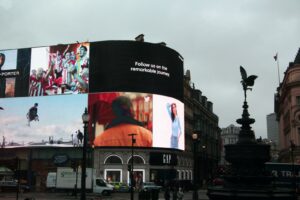Contents
Businesses that support charities have long provided incentives for the socially conscious to purchase their goods or services. From ‘Thankyou’ water to Ronald McDonald House Charities — businesses that partner up with or donate to charities are able to fulfil a meaningful cause, bring awareness to causes they are passionate about, differentiate their brand, and get kudos for being a business that cares at the same time.
Businesses can support charities no matter what their legal structure is.
There are lots of businesses supporting charities the right way. But what about those that make false charity claims? Businesses can make false charity claims on purpose or by mistake. Businesses need to be really careful to ensure they are not misleading the public with their claims.
In this article, we’ll take a quick look at what the consequences are for making false charity claims.
How Are False Charity Claims Illegal?
False charity claims are illegal. They are a breach of Australian Consumer Law—in particular, the provision that a person must not ‘in trade or commerce, engage in conduct that is misleading or deceptive or is likely to mislead or deceive.’ False charity claims can also be an example of ‘unconscionable conduct’ (defined as conduct which is so harsh that it goes against good conscience).
As well as heavy financial penalties and reputational damage for businesses involved, false charity claims impact genuinely philanthropic organisations that are doing the right thing.
Misleading and deceptive conduct encompasses a variety of behaviour, including non-intentional misleading and deceptive conduct.
Examples Of False Charity Claims
One of the most famous examples of false charity claims is that of ‘The Whole Pantry’ which was a health food app and a book run by Belle Gibson. Gibson, the director and founder of the company, claimed she had overcome brain cancer through healthy eating. Gibson claimed much of her profits would go to various charities.
Specifically, it was claimed that all profits for one week would be donated to charity, ticket sales to her app launch would be donated and, in the director’s words, ‘a large part of everything’ would be donated to charity.
It was later revealed Belle Gibson had never had cancer, and had not donated most of the donations she had claimed to.
The Consequences of False Charity Claims
Belle was found to be in breach of the ACL for misleading and deceptive conduct and unconscionable conduct. A key part of unconscionable conduct was Belle Gibson’s use of charities to further her business image, some of these charities involved seriously unwell and vulnerable children.
The consequences for Belle Gibson were fines of $440,000, as well as an injunction restraining her from making claims that she had beaten cancer with healthy eating in connection with sales for her business.
The Takeaway
If you’re thinking of helping out a charity, no matter how big or small your business’ contribution is, that’s a meaningful thing to do. However, it’s important not to make false charity claims, as this is illegal whether you mean to or not. It can harm consumer confidence, your brand and the targeted charities themselves.
If you need more help on understanding your obligations under Australian Consumer Law, reach out to us on 1800 730 617 or at team@sprintlaw.com.au for a free chat.
Get in touch now!
We'll get back to you within 1 business day.












